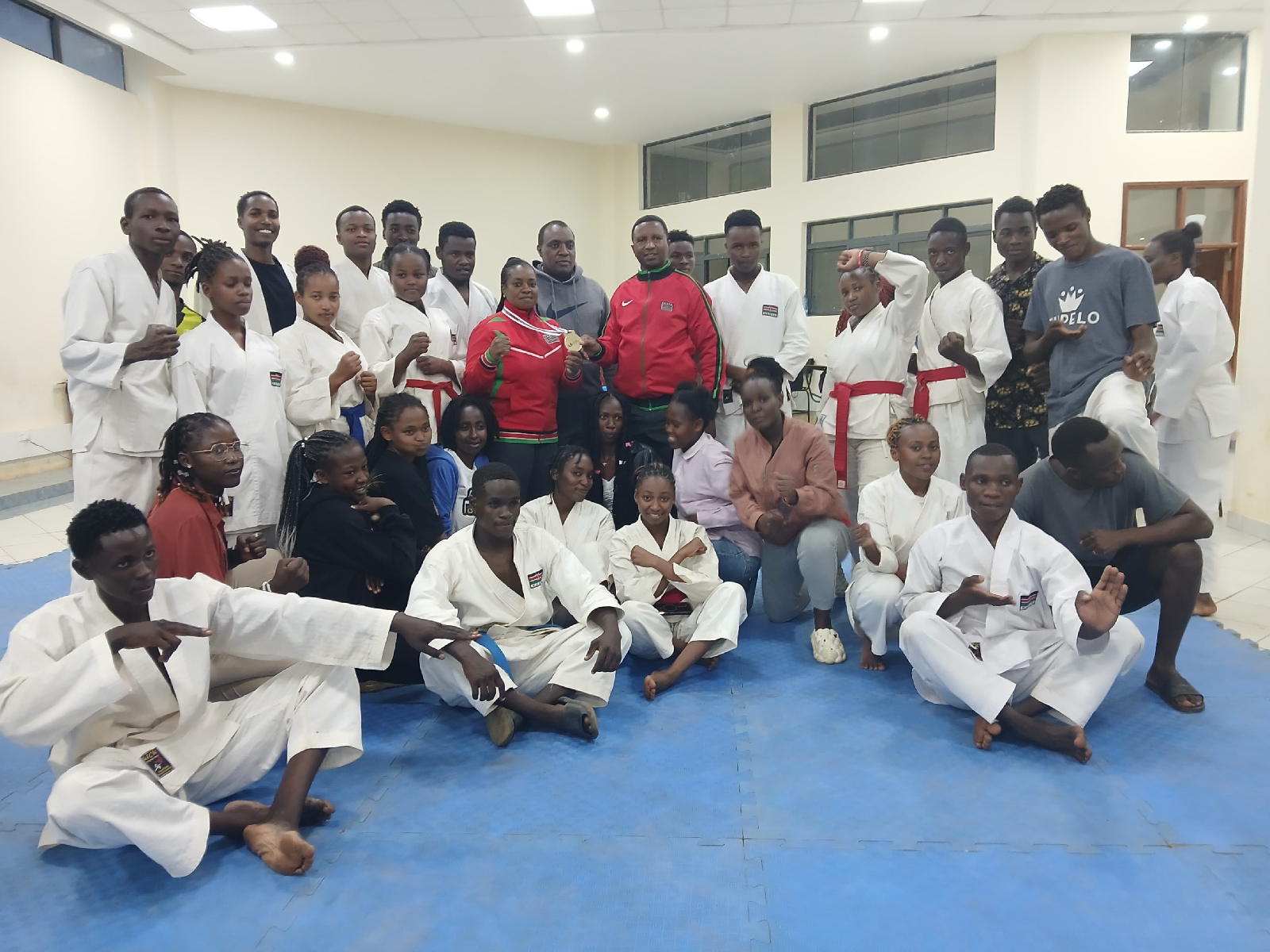STORY By RISPER SIDI
In the heart of Kenyan universities, sports have always been more than just games. They are a way of life—where passion meets discipline, and camaraderie is forged in the heat of competition. From the thunderous cheers at football stadiums to the rhythmic movements of karatekas in dojos, sports have long been an integral part of campus culture.
Then came COVID-19. The pandemic struck hard, bringing sporting activities to an abrupt halt. Training halls emptied, tournaments were canceled and players were forced into isolation. The energy that once fueled football fields and karate dojos fizzled out, leaving behind a void that no online session could fill.
As campuses slowly reopened, coaches and players faced a daunting task: reclaiming their lost glory. But the sporting landscape had changed. Fitness levels had plummeted, competition structures were altered, and mental resilience was put to the ultimate test.
This is the story of how two of the most popular sports in Kenyan campuses—football and karate—adapted, struggled, and ultimately began their journey to revival.
Before the pandemic, football was the heartbeat of Kenyan universities. Crowds of students gathered at fields, their voices echoing in support of their teams. But when COVID-19 hit, everything stopped.
For months, players could not train together. Fitness levels dropped, and when restrictions were finally eased, many students had already moved on to other commitments. “I almost quit football,” admitted Brian Otieno, a winger for Chuka University’s football team. “It felt like we had been abandoned. When we returned, it wasn’t the same anymore.”
Karate, too, suffered immensely. Unlike football, which allows some level of independent training, karate relies heavily on in-person practice—sparring, kata (forms), and kumite (combat). Without access to dojos, students had to make do with virtual tutorials and solo drills. The result? A sharp decline in technique, timing, and precision.
“I struggled with my blocks and counterattacks when we resumed training,” said Lucy Mwikali, a second-degree black belt from Kenyatta University. “Months without practice made me feel like I was starting from scratch.”
Universities now faced a difficult reality: their once-thriving sports programs were on the verge of collapse.
Beyond the physical toll, the pandemic left a deep psychological impact on student-athletes. For many, sports were an escape—a stress reliever in the midst of academic pressures. But isolation changed everything.
The absence of regular training sessions led to loneliness and frustration. Players who had built their identities around their sport suddenly found themselves struggling to cope. Stamina and flexibility, once their strongest assets, had weakened.
“The hardest part wasn’t just the loss of fitness,” said James Mutua, a football coach at Moi University. “It was watching my players lose motivation. Some never returned after the pandemic.”
In university sports, competition is everything. It fuels growth, builds character, and keeps the fire of ambition burning.
The Feature Story Writer is a Second Year Student at Chuka University pursuing a Bachelor of Arts Degree in Journalism and Mass Communication












 MWINGI TIMES for timely and authoritative news.
MWINGI TIMES for timely and authoritative news.
You di damn,,,a very resilient and precise story that ultimately recapture the lost potential glory of sports in this fragile continent,,, we are really happy for you for the great empowerment that you are indicating in your presentation to other youths like you....indeed it is an absurd recollection that has to be melancholic appreciated benevolent.....
ReplyDelete"Great job on this piece,,Your storytelling skills are really shining through, and it's clear that you're passionate about journalism. Keep up the great work, and I can't wait to read more from you in the future.
ReplyDelete